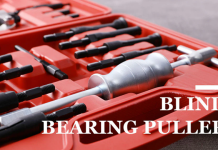Working with a medical device consultant can provide invaluable expertise and guidance, helping companies navigate the complex regulatory landscape, optimize product development, and ensure successful market entry. However, mistakes during this collaboration can lead to delays, increased costs, and compliance issues. To help you make the most of your partnership, this article outlines the top five mistakes to avoid when working with a medical device consultant.
For businesses seeking expert guidance, understanding the role of medical device consulting can save time, resources, and potential regulatory headaches. Partnering with the right consultant can streamline processes, but missteps in the collaboration can hinder progress.
Mistake 1: Not Clearly Defining Your Goals
One of the most common mistakes companies make is failing to clearly define their objectives before engaging a consultant. Without a well-structured plan, both parties may struggle to align expectations, which can lead to miscommunication and inefficiencies.
Before starting the project, outline specific goals, deliverables, and timelines. For example, are you looking for guidance on regulatory strategy, product development, or market entry? A clearly defined scope ensures the consultant can provide targeted support and avoids unnecessary work that does not directly benefit your project.
Mistake 2: Underestimating the Value of Regulatory Expertise
Medical devices are subject to strict regulations that differ across regions, including FDA requirements in the United States and CE marking in Europe. Companies sometimes underestimate the importance of regulatory expertise and assume internal teams can handle compliance independently.
A qualified medical device consultant brings specialized knowledge that goes beyond general compliance. They can help you avoid common pitfalls, anticipate regulatory challenges, and maintain documentation according to industry standards. Overlooking this expertise can result in delays, fines, or even rejection of product submissions.
Mistake 3: Failing to Communicate Effectively
Effective communication is crucial when working with a consultant. Some companies make the mistake of providing limited information, infrequent updates, or unclear instructions. This can slow progress, create misunderstandings, and lead to missed deadlines.
Establish regular check-ins, set clear expectations for updates, and provide comprehensive background information. Sharing insights about your team, internal processes, and project history helps the consultant deliver tailored solutions and reduces the likelihood of errors.
Mistake 4: Not Involving the Consultant Early Enough
Many businesses engage consultants too late in the development process. Waiting until challenges arise or projects are well underway can limit the consultant’s ability to influence key decisions effectively.
Involving a medical device consultant from the early planning stages allows them to provide strategic guidance, identify potential risks, and suggest improvements before they become costly problems. Early collaboration can streamline development, enhance regulatory compliance, and reduce time-to-market.
Mistake 5: Ignoring the Consultant’s Recommendations
Even when a company hires an experienced consultant, it is common to overlook or undervalue their advice. This can happen due to internal politics, budget constraints, or overconfidence in in-house expertise. Ignoring recommendations can compromise product quality, regulatory compliance, and project timelines.
To maximize the benefits of consulting, take recommendations seriously, evaluate them objectively, and incorporate them into your project strategy. Consultants provide insights based on industry experience and regulatory knowledge, which can save your organization from costly mistakes.
Additional Tips for a Successful Consultant Collaboration
- Establish a formal agreement: Clearly outline responsibilities, deliverables, and payment terms.
- Foster a collaborative environment: Encourage open communication and knowledge sharing between internal teams and the consultant.
- Track progress: Use project management tools to monitor milestones, deadlines, and tasks.
- Ask questions: Don’t hesitate to seek clarification or further explanation on regulatory or technical guidance.
Conclusion
Avoiding these common mistakes can significantly improve the outcome of working with a medical device consultant. Clearly defining goals, valuing regulatory expertise, maintaining effective communication, involving the consultant early, and following their recommendations are essential steps to a successful collaboration. By adhering to these best practices, your organization can enhance compliance, streamline development, and bring high-quality medical devices to market more efficiently.
Working strategically with a consultant ensures you maximize the return on your investment and minimize potential setbacks. For businesses seeking professional guidance, understanding the scope and benefits of medical device consulting can be the difference between smooth project execution and costly delays.









































